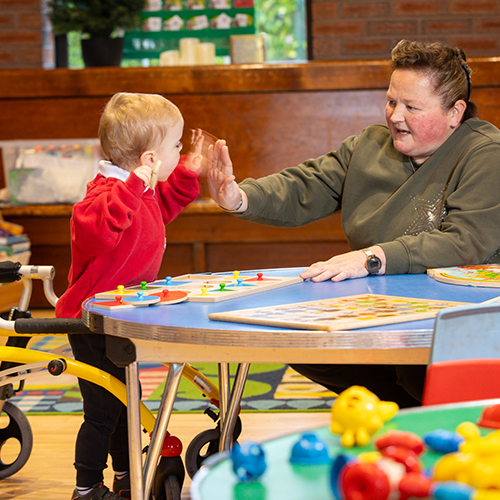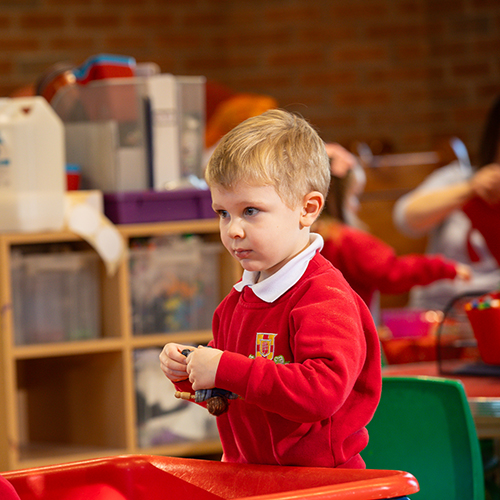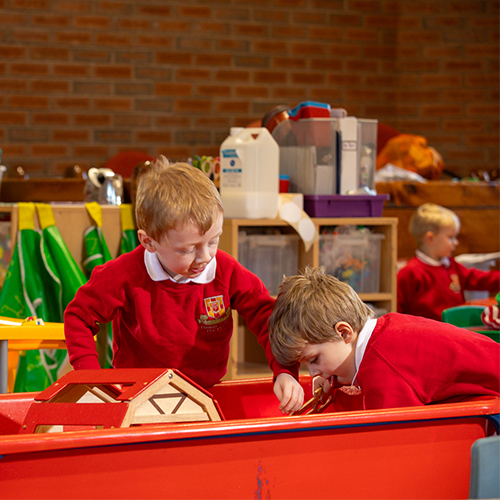Our Early Years’ programme is centred around child-led learning and carefully planned play activities, led by caring and experienced practitioners.
Includes Talking and Listening, Reading and Writing.
In Foundation Stage, we focus on each child’s ability to understand and use spoken and written language as an integral part of learning. We view language and literacy holistically, taking account of the connections between talking and listening, reading and writing, which extend across all areas of the curriculum.



